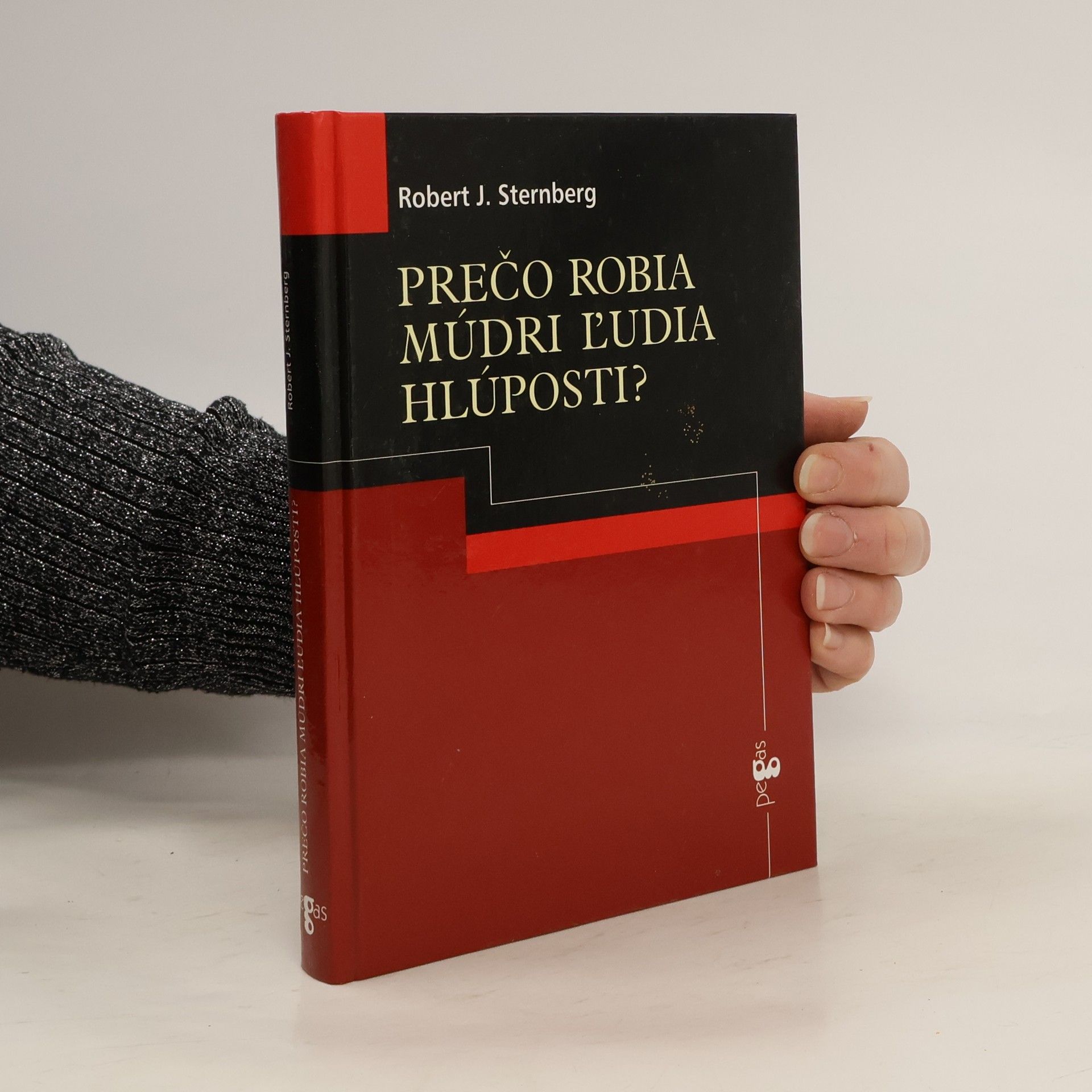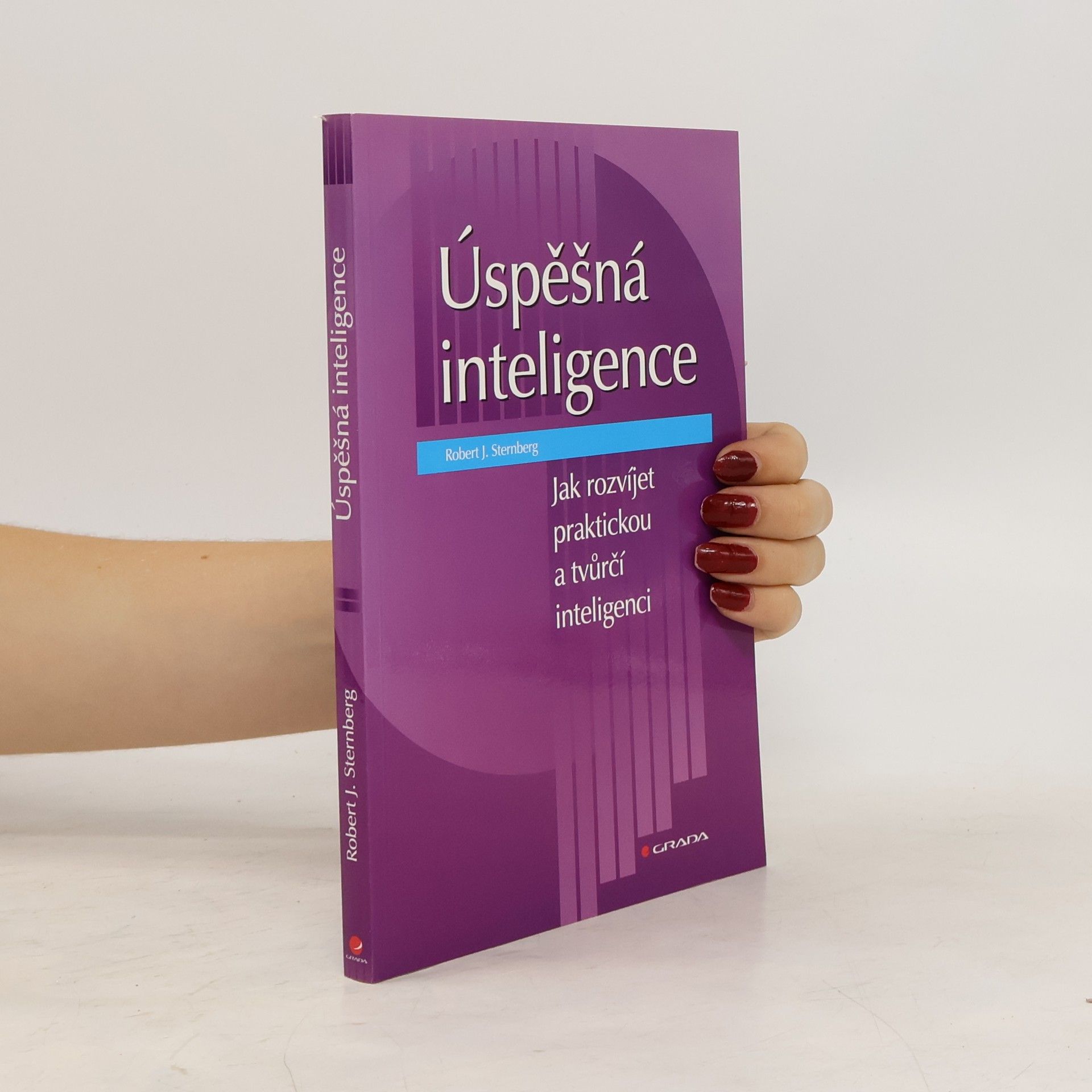Sternberg's text balances accessible writing, practical applications and research scholarship, including biologically oriented information. It explores the basics of cognitive psychology through its coverage of cognitive neuroscience.
Robert J. Sternberg Libros
Robert J. Sternberg es un psicólogo que desafía las visiones tradicionales de la inteligencia. Su Teoría Triárquica de la Inteligencia Exitosa postula que la verdadera inteligencia reside en un equilibrio de habilidades analíticas, creativas y prácticas. Sternberg enfatiza que el comportamiento inteligente no solo implica el pensamiento analítico, sino también la capacidad de generar ideas novedosas y aplicar el conocimiento de manera efectiva en contextos del mundo real. La adaptabilidad y el aprovechamiento de las fortalezas de uno dentro de un entorno sociocultural específico son fundamentales para alcanzar el éxito, según su influyente obra.

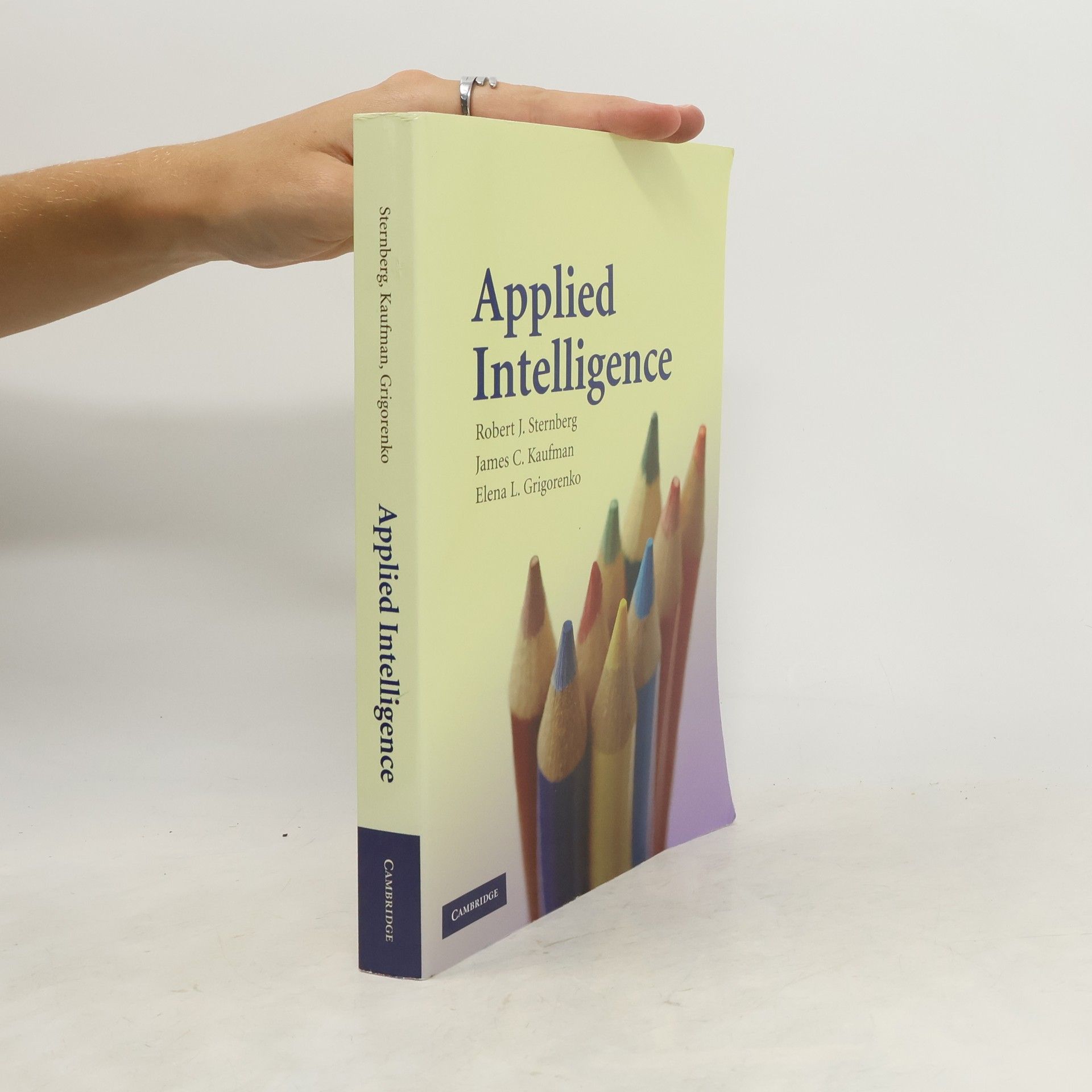
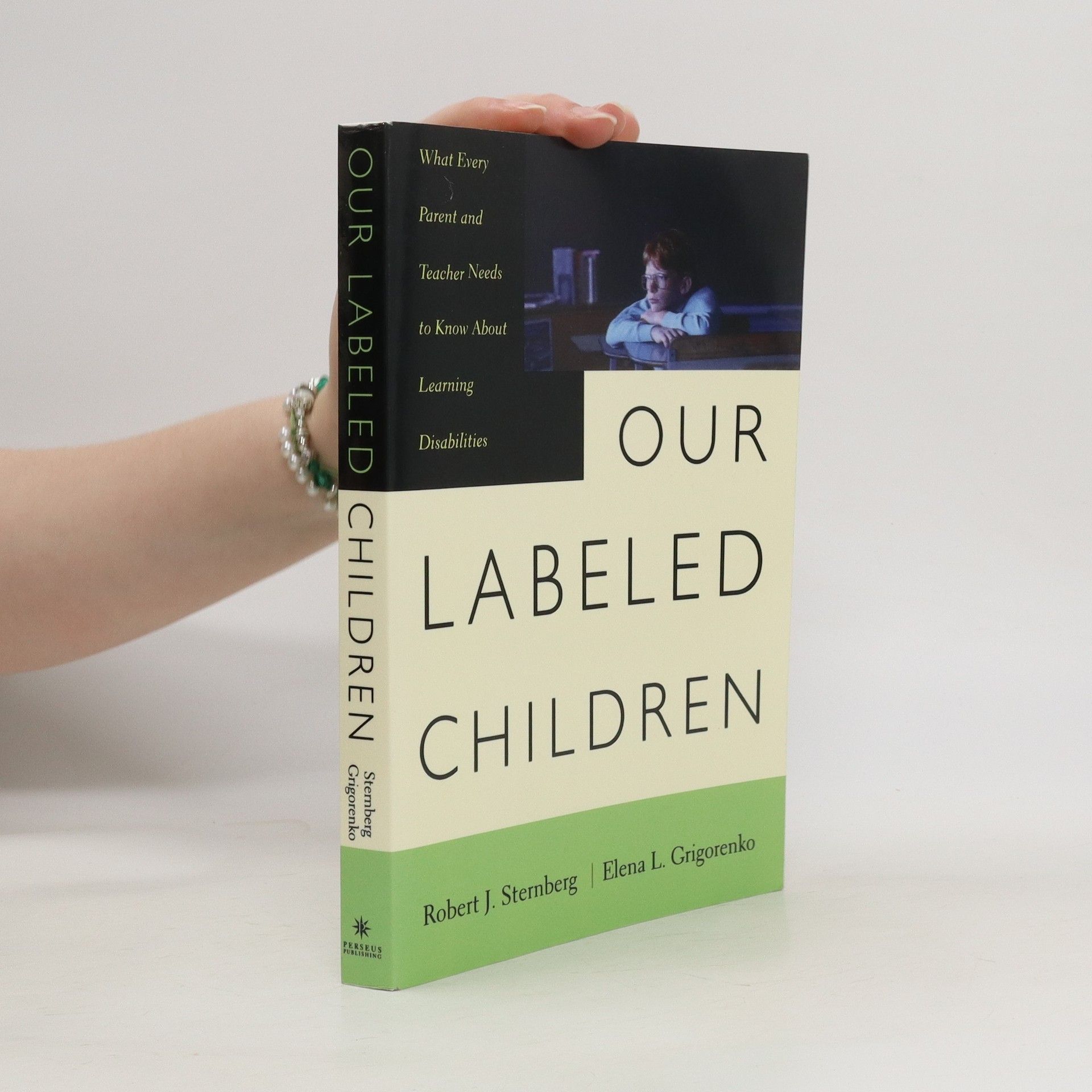

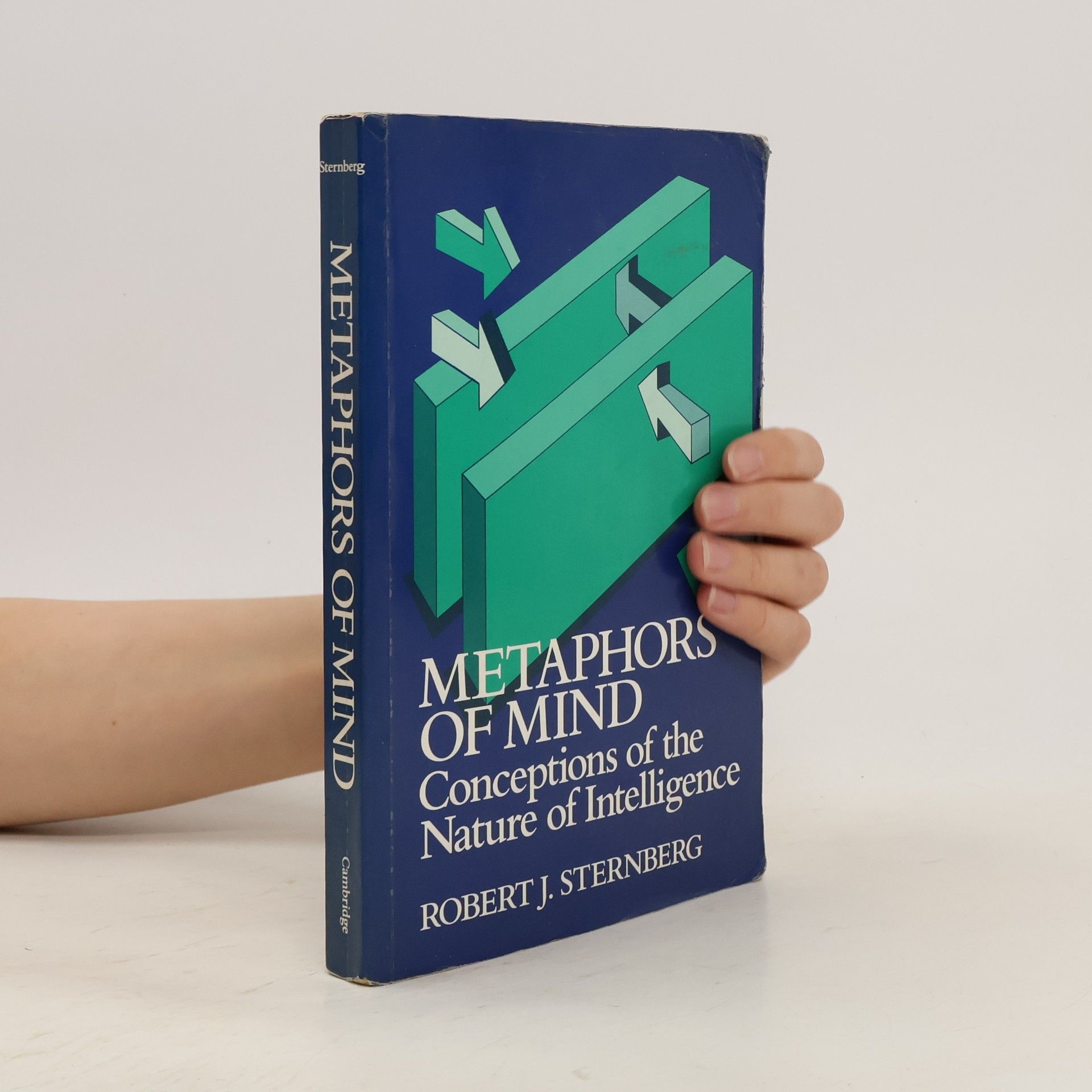


A world-renowned expert on human intelligence argues that societies continue to use a flawed, early twentieth-century conception of human intelligence. Instead of focusing on narrow academic skills, we should adopt the values of 'adaptive intelligence,' defined as the use of talent in service of the common good.
Exploring human intelligence through diverse lenses, this book integrates insights from psychology, anthropology, computational science, sociology, and philosophy. It aims to deepen readers' understanding of the complexities of the mind by presenting various metaphors that illustrate different aspects of intelligence.
The Nature of Intelligence and Its Development in Childhood
- 80 páginas
- 3 horas de lectura
In this Element, I first introduce intelligence in terms of historical definitions. I then review the major approaches to understanding intelligence and its development. These approaches, taken together, present a much more complex portrait of intelligence and its development than would be ascertained just from scores on intelligence tests.
Our Labeled Children
- 304 páginas
- 11 horas de lectura
Twenty percent of all school-aged children in this country have been labeled Learning Disabled. But what is a genuine learning disability? How does it differ from garden-variety poor learning? How can we more accurately assess and then teach to individual learning strengths instead of merely pinpointing learning weaknesses? In this passionately argued yet clear-headed book, internationally acclaimed cognitive psychologist Robert Sternberg and research scientist Elena Grigorenko tackle these controversial issues, urging that we understand the full range of factors that contribute to learning disabilities (and sometimes to their misdiagnosis) in order to improve the American educational and diagnostic systems.From the biological bases of dyslexia and other disabilities, to the tests that do and do not accurately assess learning abilities, to the social and educational pressures that contribute to misdiagnosis, Our Labeled Children clearly outlines the issues that concern both parents and teachers, ultimately pointing to clear strategies for improving our system to help children with all manner of learning problems.
Applied Intelligence
- 432 páginas
- 16 horas de lectura
Typical texts develop students' knowledge while only minimally developing the general skills they will need for success in school and in life. The goal of our text is to assist students in acquiring the most important skills for facing the diverse challenges life presents. The book contains an overview of theories of intelligence, but itself is based in large part on a theory according to which individuals need creative skills to generate new ideas and a vision for the future, analytical skills to make sure that the vision is a good one, and practical skills to execute the ideas and to persuade other people of their value. The book considers key skills in problem solving, logical reasoning, analysis of arguments, knowledge acquisition, creative and practical thinking, automatizing information processing, and avoiding life traps that derail even the most intelligent among us.
Wisdom is the deployment of intelligence and knowledge to serve a common good, over the long term as well as the short term. We need it now, more than ever, to solve the world's problems. This book explains what it is, how to acquire it, and how to use it.
Prečo robia múdri ľudia hlúposti?
- 294 páginas
- 11 horas de lectura
Prečo ľudia rozmýšľajú a správajú sa tak hlúpo, že nakoniec zlyhajú existenčne a celkom si zničia život? Predkladaná kniha sa dotýka práve tejto otázky, ktorú drvivá väčšina teórií v psychológii, vrátane teórií inteligencie, ako sa zdá, ignoruje. Svet podporuje miliardový priemysel výskumu a testovania inteligencie a schopností v snahe určiť, koho jeho inteligencia predurčuje na úspech, ale prakticky nik sa nevenuje skúmaniu, kto túto inteligenciu najlepšie využije, a kto ňou bude len plytvať tým, že jeho konanie bude až dych vyrážať. „Hlúposť“ sa tu nevzťahuje na mentálnu retardáciu, poruchu učenia ani na žiadne iné bežné označenie ľudí, ktorí podávajú slabý výkon v niektorom z tradičných testov. Skôr sa autori príspevkov zameriavajú na tých, ktorí vyviedli nejakú donebavolajúcu hlúposť Táto kniha evidentne nebude o hlúposti v tradičnom zmysle založenom na určovaní IQ. Táto kniha sa zaoberá skôr „hlúpym“ rozhodovaním, ktoré môže mať celospoločenský dosah. V snahe o vzájomnú prepojenosť príspevkov autori spracovali nasledujúce témy: Základná charakteristika hlúposti/Návrh teórie hlúposti/Vzťah hlúposti a inteligencie/Merateľnosť hlúposti/Formovanie hlúposti (v snahe eliminovať ju)
Úspěšná inteligence : jak rozvíjet praktickou a tvůrčí inteligenci
- 208 páginas
- 8 horas de lectura
Profesor Yaleovy univerzity J. R. Sternberg, dokazuje v knize, že vysoké IQ nezaručuje, že člověk bude úspěšný v životě, stane se dobrým studentem, dobrým manažerem. Vysvětluje velmi čtivě a srozumitelně a na velkém množství příkladů ze života, že inteligence přinášející úspěch v životě se sestává ze tří složek – analytické, praktické a tvůrčí inteligence. Analytická inteligence, zjišťovaná v testech IQ, je jen malým výsekem inteligentního chování. K úspěchu v životě přispívají právě inteligence tvůrčí a praktická. Jaké závěry z toho vyplývají pro rozvíjení takových schopností u sebe a druhých, které přinášejí úspěch, co to znamená pro testování a hodnocení schopností, na to odpovídá právě tato kniha. Je proto určena psychologům, kteří se v praxi živí diagnostikou a testováním, personálním manažerům, vedoucím nejrůznějších týmů, učitelům, výchovným poradcům, a všem.těm, kteří se chtějí také poučit, jak rozvíjet u sebe a druhých praktickou a tvůrčí inteligenci, která přináší úspěch v životě.
Láska je príbeh
- 197 páginas
- 7 horas de lectura
Robert J. Sternberg v tejto prelomovej práci otvára tému lásky a odhaľuje spôsob chápania medziľudských vzťahov v celkom novom svetle. Prečo nás niektorí ľudia tak veľmi priťahujú, iní zas odpudzujú? Prečo niektoré vzťahy fungujú bezproblémovo a iné zhoria v plameňoch? Sternberg ponúka na tieto otázky nové odpovede. Ukazuje, že naše vzťahy závisia od príbehu lásky, ktorý nosíme vo svojom vnútri. Vychádza pritom zo širokého výskumu podopretého fascinujúcimi príkladmi skutočne existujúcich párov. Sternberg identifikuje 26 typov príbehov lásky so všetkými kladmi i zápormi. Naše romantické voľby však vo veľkej miere riadia predsudky a ide len o to, aby sme spoznali ten svoj príbeh lásky, a následne utvárali plnohodnotnejšie a trvácnejšie vzťahy. Hoci nás naše príbehy ovplyvňujú, dokážeme ich prehodnotiť a naučiť sa vyberať si partnerov, ktorých príbehy sú podobné našim. Otázky v každej kapitole pomáhajú čitateľovi identifikovať jeho príbeh aj príbeh jeho partnera. Ste cestovateľ, záhradkár, učiteľ alebo niečo celkom iné? Kniha Láska je príbeh vám ukáže, ako to zistiť.
